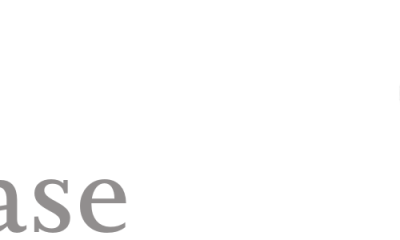VICTORIA – Premier David Eby says “kitchen table” issues in British Columbia will be the focus for his revamped, postelection cabinet that was sworn in on Monday.
Eby’s new cabinet, comprising 23 ministers and four ministers of state, features a mix of new and familiar faces elected in last month’s narrow one-seat New Democrat election win.
“The things that concern your family around the kitchen table are going to be the issues that concern our team around the cabinet table,” he said after the cabinet introduction ceremony at government house.
“Ours will be a government that listens and ours will be a government that delivers,” said Eby, adding “that was the message that people sent us here to do this job in this recent election.”
“That is something every one of these members and everyone who was elected is going to carry with them in the work they do over the next four years,” he said.
He said the priorities for the new cabinet and the NDP government will include good paying jobs, family doctors for everybody, safe communities and affordable homes.
Eby shuffled veteran ministers Adrian Dix and Mike Farnworth and introduced to cabinet several newly elected members of the legislature.
Dix, the longtime health minister who guided the province through the COVID-19 pandemic, was moved to energy and climate solutions, while Josie Osborne, a two-term MLA and a former mayor of Tofino, will take on health.
Eby said Dix was moved to energy and climate solutions because of his track record of success.
“I need someone who can deliver and Adrian is that minister,” Eby said at a news conference. “It’s critically important for our government.”
Dix will be tasked with ensuring B.C. develops its clean energy systems and markets, he said.
Osborne said as a resident and a former mayor of a rural community, she understood the health-care needs of people outside B.C.’s urban areas.
“Everybody deserves access to health care,” said Osborne, acknowledging that many rural B.C. communities have concerns about recurring hospital emergency department closures. “I hear you. I see you.”
Farnworth, B.C.’s veteran solicitor general and public safety minister, was moved out of those portfolios and into transportation and transit, and will also serve as NDP house leader.
Garry Begg, a former RCMP officer, got one of the biggest cheers when he was introduced by Eby as the new solicitor general and public safety minister, elevating him from the backbench to cabinet.
Eby introduced Begg by the nickname “Landslide” in a nod to his wafer-thin 21-vote victory in Surrey that secured the government its one-seat majority.
Brenda Bailey, the former jobs minister and a Vancouver businesswoman, moves into the crucial finance portfolio.
Newly elected MLAs also featured in the cabinet, with former broadcaster Randene Neill becoming minister of land, water and resource management, and Vancouver Police Department veteran Terry Yung named minister of state for community safety.
Among the senior cabinet ministers who kept their jobs were Housing Minister Ravi Kahlon and Attorney General Niki Sharma, whose first duty upon being reappointed was accepting the Great Seal of British Columbia from Lt.-Gov. Janet Austin.
Austin opened Monday’s swearing-in ceremony by paying tribute to former premier John Horgan, who died of thyroid cancer last week.
She called Horgan “a fine man” who loved B.C., and said she would miss his “dad jokes” and “corny” sense of humour.
Eby said after the ceremony that his team would make affordability a priority issue.
“(For) those families hit hard by inflation and rising costs, our focus will be on controlling your costs, supporting you with the cost of everything from housing to car insurance and delivering a middle-income tax cut to support you and your family in these challenging times,” he said.
During the campaign, Eby promised a $1,000 tax cut for the average family, starting next year and benefiting 90 per cent of British Columbians.
Eby faced the challenge of filling the cabinet from a caucus reduced to 47 members in the Oct. 19 election, which gave the NDP the narrowest of majorities in the 93-seat legislature.
Former B.C. Liberal cabinet minister Mike Bernier, who ran unsuccessfully as an Independent last month in his Dawson Creek-area riding, said Eby had to find ways to bring rural representation into the cabinet even though most of his members were from Metro Vancouver or Vancouver Island.
Brittny Anderson, who won in Kootenay-Central, helped fulfil that goal, being appointed minister of state for local government and rural communities.
Energy and mining were carved into two separate portfolios, with Jagrup Brar taking on the latter, now renamed mining and critical minerals.
“We have two separate ministries dedicated to major economic growth sectors for us,” Eby said.
The legislature’s youngest MLA, Ravi Parmar, entered cabinet as forests minister.
B.C. Conservative Leader John Rustad said Eby had been invisible when it comes to rural B.C., and he and his 44-member caucus were looking forward to holding the government to account on numerous issues.
Green Leader Sonia Furstenau said in a statement the party was pleased Eby appointed a cabinet with a strong representation of women in leadership roles and a female majority.
“We are particularly pleased to see Niki Sharma appointed as deputy premier and Attorney General, Tamara Davidson as Minister of Environment and Parks, and Bailey as Minister of Finance,” she said. These critical roles will have a significant impact on shaping the future of British Columbia.”
Eby said the NDP government continued to negotiate will the Greens about how the party’s two elected members could work with the government.
“I hope British Columbians see in this cabinet an experienced team that’s going to be focused on the priorities they sent us to Victoria to address,” he said.
This report by The Canadian Press was first published Nov. 18, 2024.

























